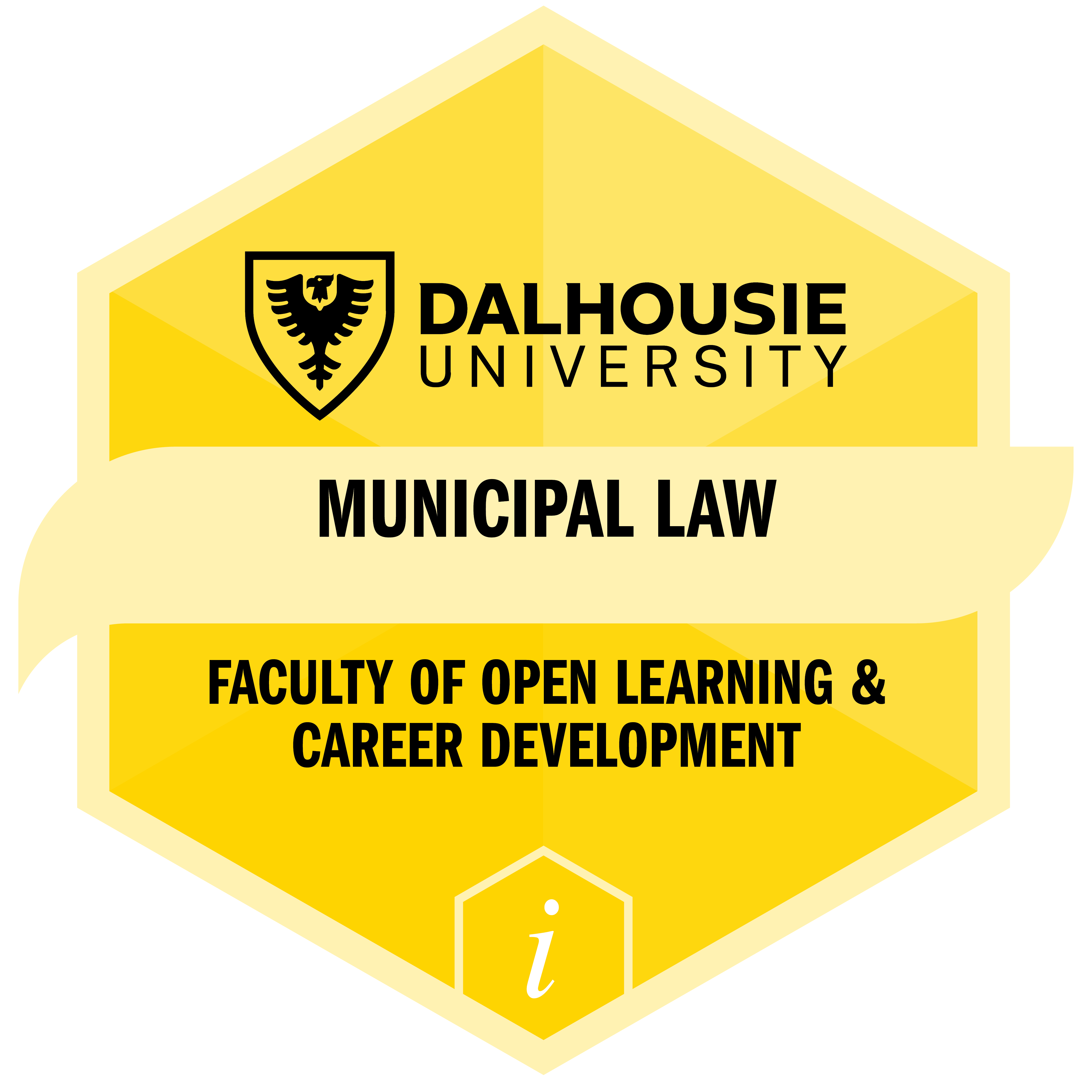Course Description
Municipal Law introduces the law as it affects municipalities. The source and extent of municipal authority are examined, as well as the limitations placed on municipal powers by the constitution and the common law.
Topics addressed include the election and operation of council; drafting, enacting and enforcing bylaws; reasons for bylaw invalidity; municipal contracts and tendering; and municipal liability.
Course Outline
Module 1
This module begins with an introduction to the law. The influence of the Canadian constitution and the Canadian Charter of Rights and Freedoms on municipalities will also be discussed.
Module 2
This module discusses the definition and purpose of local government, the municipality as a corporation, and the legislation governing the internal structure of the municipal corporation.
Module 3
This module provides an overview of the legislation that gives authority to municipalities. The module also examines how courts have interpreted that legislation and defined the scope of the powers conferred by the legislation.
Module 4
This module will examine the basic principles related to municipal bylaws, as well as the processes for enacting and amending bylaws. Finally, we will review methods and procedures related to bylaw enforcement.
Module 5
This module will examine contract law, emphasizing aspects that are of particular interest to municipalities. As municipalities frequently engage in tendering and, as contract law governs tendering, we will also look closely at the tendering process.
Module 6
This module examines municipal liability. It considers the scope of immunity offered to municipalities by the common law and statute, and offers some practical suggestions on how to manage risk.
What You Will Learn
Upon completion of this course, learners will be able to:
- describe the sources of law in Canada and explain how they interrelate and affect municipal decision making;
- analyze the unique challenges facing municipalities in bylaw enforcement;
- discuss how municipalities purchase goods and services, and identify and discuss procedural requirements that may be imposed on them in this regard;
- describe the circumstances under which the elected and employees of a municipality could held be personally liable; and
- propose strategies for managing a municipality’s risk of liability.
Microcredential
This course provides learners with the opportunity to earn a microcredential. A microcredential is evidence of a skill or competency that is employment related. Dalhousie microcredentials are developed in collaboration with employers, industries, and/or organizations that relate to the content. A microcredential can be displayed on social media pages, digital resumes, personal webpages, and in email signatures. To earn the microcredential in this course, learners will need to successfully complete a competency-based assessment.
Learn more about this microcredential here.
Notes
The Faculty of OLCD recommends an intermediate level of English language proficiency for the most effective learning and participation in our online and face-to-face courses. A list of minimum recommended scores on some common English tests can be found on our website. If you have questions about your English language proficiency and ability to succeed in this course, please contact openlearning@dal.ca.
Recommended For
- Municipal clerks and those working in corporate services
- Public sector professionals interested in advancing their career
- Procurement and other contract specialists
Applies Towards the Following Certificates
- Certificate in Advanced Fire Service Administration : Electives
- Diploma in Executive Fire Leadership : Electives
- Diploma in General Fire Leadership : Elective - Certificate in Advanced Fire Service Administration
- Certificate in Governance and Administration : Required
